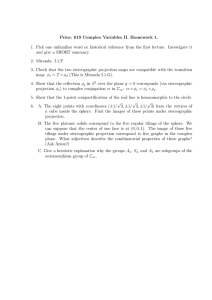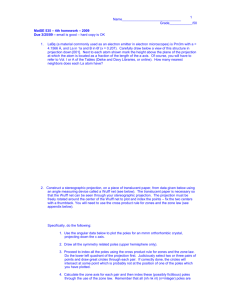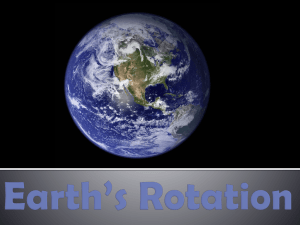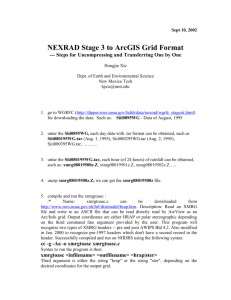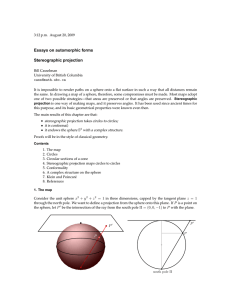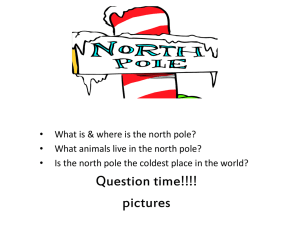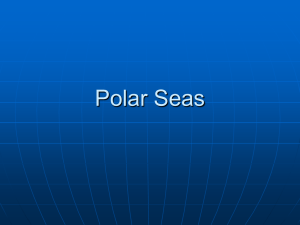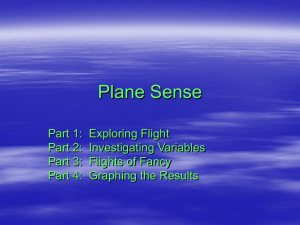Crystallography 8
advertisement
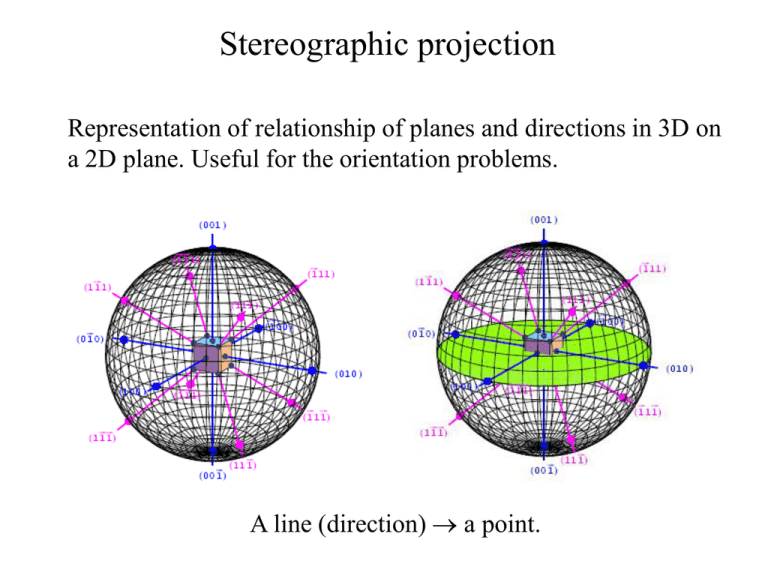
Stereographic projection
Representation of relationship of planes and directions in 3D on
a 2D plane. Useful for the orientation problems.
A line (direction) a point.
(100)
http://courses.eas.
ualberta.ca/eas23
3/0809winter/EA
S233Lab03notes.
pdf
A plane (Great Circle) trace
Pole and trace
http://en.wikipedia.org/wiki/Pole_figure
Great circle
Equal angle
with respect
to N or S pole
Construction of latitude (Parallels)
and longitude (Meridians)
of Wulff net!
http://www.quadibloc.com/
maps/maz0202.htm
Meridians: great circle
Parallels except the
equator are small
circles
Using a Wulff net:
How to address the shorted distance
between two locations?
Connecting two points with the great circle!
Measure the angle
between two points:
Bring these two points on
the same great circle;
counting the latitude angle.
Angle between the planes of two zone circles is the angle
between the poles of the corresponding
Finding the trace of a pole:
Rotation of a projection about an axis
in the projection plane
Rotation about a direction (pole) that is inclined
to the projection plane
To rotate about the
pole B1 by 40°
Movement of pole when rotated along A axis for 35.3o.
The (112) pole is brought to the center.
Determining Miller indices for poles:
[001]
[010]
[100]
d
d
d
cos ;
cos ;
cos
(a / h)
(b / k )
(c / l )
h : k : l a cos : b cos : c cos
Stereographic projection of different Bravais systems
Cubic (001)
How about a standard (011) stereographic
projection of a cubic crystal?
𝑥
𝑦
𝑧
Start with what you know!
What does (011) look like?
[011]
[100]
𝑥
(011)
[100]
𝑧
𝑦
[011]
[111]
[111]
109.47o
70.53o
(011)
[011] [001] [011]
[011]
[100]
𝑥
(011)
[100]
𝑧
𝑦
45o
[011]
[001]
[011]
[011] [111] [100]110
[111]
[011]
[100]
𝑦
[100]
35.26o
111
[011]
𝑥
70.53o
(011)
𝑧
[011]
[011] [001] [011]
Trigonal
Hexagonal
3a
[2111]
[0001]
tan
−1
3𝑎
𝑐
c
3a
[2110]
Orthorhombic
Monoclinic
Stereographic projections of non-cubic crystals:
two stereographic
projections is required (one
for the surface normal
(poles) and the other the
directions).
Two convections used in stereographic projection
(1) plot directions as poles and planes as
great circles
(2) plot planes as poles and directions as
great circles (plot the pole of the plane
and the great circles of the direction)
Example: [001] stereographic projection; cubic
(2)
Zone
axis
B.D. Cullity
Applications of the Stereographic projections:
(1) Representation of point group symmetry
(2) Representation of preferred orientation (texture or
fabric): e.g.
A rolled sheet of
polycrystalline cubic
Metal.
{111}
pole
figure
Showing
the
orientation
of {111}
planes
A {100} pole figure
RD: rolling direction
TD: transverse direction
Successive levels of
shading correspond to
the contours of the
orientations of plane
normals and directions.
{100} plane normals are spreading out toward the
transverse direction
Worthwhile reading:
http://www.doitpoms.ac.uk/tlplib/stereographic/index.php
http://folk.uib.no/nglhe/emodules/Stereo%20module/1%20Stereo%20new.swf
